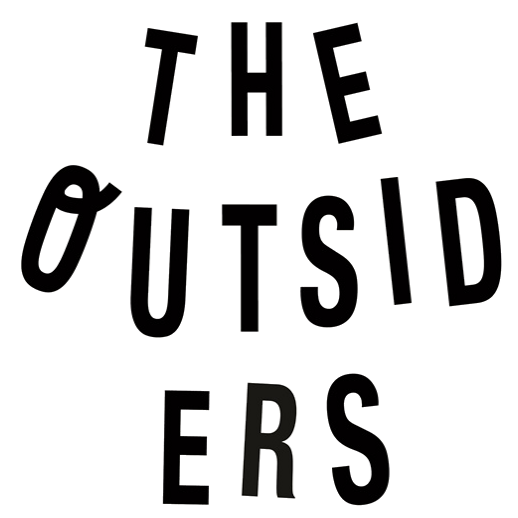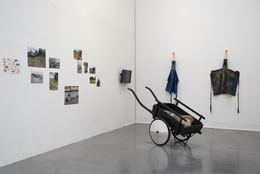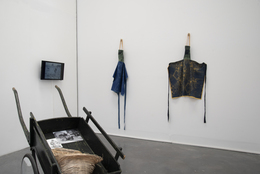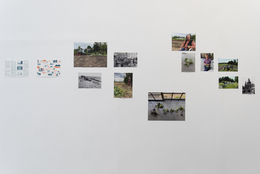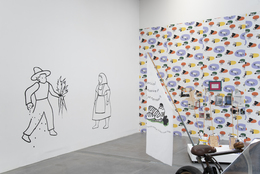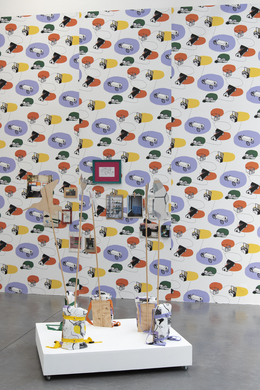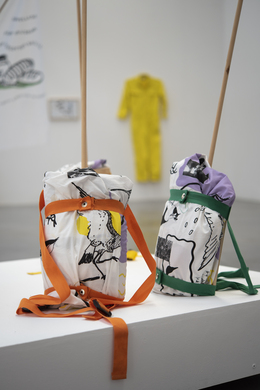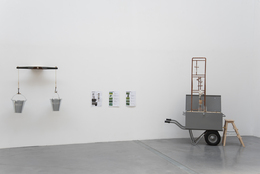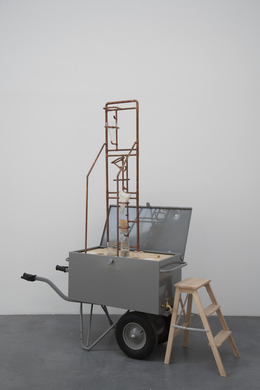Mobile Installations
The Outsiders / Travelling Farm Museum of Forgotten Skills
The Travelling Farm Museum of Forgotten Skills is a participatory, mobile museum where artists, citizens, and farmers share stories about their relationship to food and the landscape. Comprised of The Outsiders collective (Asia Komarova, Txell Blanco, Merel Zwarts, Maxim Yesodharan, and Leonardo Siqueira) in collaboration with Casco Art Institute, they operate vehicles that physically and symbolically convey ideas about food sovereignty, ecology, and relationality to different local publics. By visiting farms and food producers and connecting heritage skills to present challenges, they create tools for listening and dialogue that connect environmental care with art and critical pedagogies.
Mooswief
Travelling Farm Museum’s latest iteration centers around the figure of the mooswief (Limburg dialect for “vegetable woman”), an expression used to describe rural women who in the past would come to Maastricht to sell their goods at the weekly market. Each year a larger-than-life marionette of the mooswief is hoisted up a pole in the city’s market square to inaugurate the Carnival festive season. Just as Carnival celebrates the return of light and a renewed spring, the mooswief has come to symbolize fertility and a deep connection to the land. Shepherding her spirit along this journey are memories and lore of sjellik, a once ubiquitous but now largely disappeared local cruciferous vegetable.
Formerly a wagon covered in mirrors to blend into the surrounding landscape, the Travelling Farm Museum of Forgotten Skills now bears a kaleidoscopic image of the Maastricht city border and its neighboring farmlands. Accompanied by a soundscape of the countryside, The Outsiders move as mooswiefs through the public square, engaging those around them in a conversation about food, heritage, and the possibility for a common future.
Meadow birds
‘How we cultivate and transform land for our daily lives does not only affect people. Human activities are part of a larger ecosystem of species. There is a connection between the way we transform landscapes and the kind of birds that live in our immediate environment. The way in which humans work land and build cities has consequences for bird populations. In turn, birds adapt to what we have built and provide services to us that we may not even be aware of.
The Dutch meadow Birds lives are captivated in a net of dependency of what we humans do. These birds are dependent on how humans exploit land and water in our typical polder landscapes, so typical for dairy production. What do birds tell us? Who listens to their songs, their voices, their needs when we silence them with the way we cultivate and transform the landscapes we inhabit? What if we see birds just as humans and as users of land(scapes) and as members of our communities? Birds provide avian ecosystem services contributing to the human farming practice by pollinating plants, spreading seeds, controlling pests and fertilizing soils, help cycle nutrients, among other things. Around 5% of the plants humans use for food or medicine are pollinated by birds worldwide. On the other hand, the way we cultivate land, contributes to the lives of birds as well. Different eco-agricultural practices benefit from bird life, and vise versa. Birds play an important role in the ecosystem between humans, soil, plants and other creatures.
We would like to introduce you to the meadow birds’ songs that are so characteristic for the Dutch agricultural landscape, and have been disappearing from the area of Leidsche Rijn, and the population keeps on decreasing. The missing birds of the vinex wijk. I would like to let them do their talking.’
Trusting the water
A link to the video.
